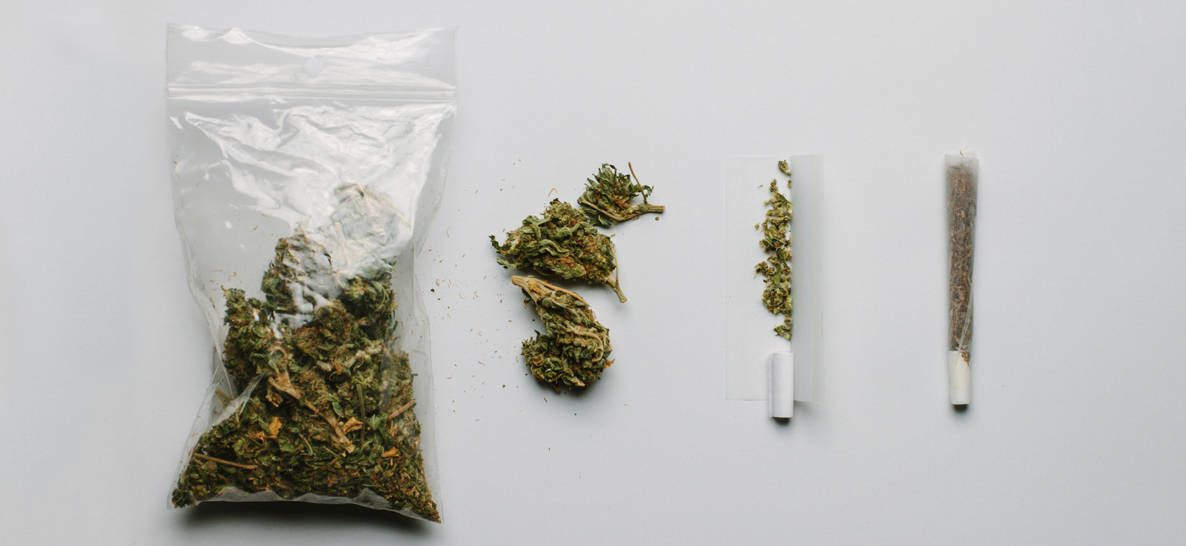
Last month, nearly 6,000 inmates around the country were released early from their prison sentences, and they all have one thing in common: They are non-violent drug offenders. It’s the single largest federal prisoner release in American history.
The move to release these prisoners is a signal that one of the main strategies in America’s “War on Drugs” is beginning to change. Each of the offenders who walked free is serving a sentence handed down years ago that is longer than it would be if they were sentenced today. Many were subjected to “mandatory minimums” that initially aimed to crack down on drug crime.
The problem is, many leaders on both sides of the political aisle now believe that strategy is broken.
America’s “War on Drugs” first came to being in the ’70s as a way to fight the proliferation of drugs. But decades later, two of its main strategies—the complete prohibition of most recreational drugs and long sentences for crimes as simple as possession—are being reconsidered. And for Christians, even those who oppose drug use, the consequences are significant.
A Broken Strategy?
The United States currently has the highest incarceration rate in the entire world, housing 22 percent of all of the prisoners on the entire planet. Considering the U.S. only accounts for less than 5 percent of the global population, that’s a staggering number. Even more staggering is that 50 percent of federal inmates are behind bars for drug-related crimes. Many experts consider the leading drug that puts people away, marijuana, to be no more dangerous than alcohol.
Even for anti-drug advocates who are concerned about the moral, health and social consequences of drug use, stats suggest the strategy of cracking down on possession hasn’t helped curb drug use.
Government data shows that in recent decades, the availability and danger of drugs has increased, not decreased. As Business Insider notes, “Based on seven major illegal drug data surveillance systems, the researchers found that heroin, cocaine and marijuana became significantly cheaper and more potent from 1990 to 2007 (the last year for which data is publicly available).”
In addition to the War on Drugs’s inefficiency is its unfairness. Critics of harsher drug laws point to inconsistencies in policies that seem to make minorities the targets of longer sentences. For example, for years, sentences for crack cocaine could be up to 100 times longer than sentences for powder cocaine, even though they are nearly identical chemically. (Crack cocaine tends to be more prevalent in low-income minority communities while powder cocaine is primarily used in upper-class, white communities.)
Enforcement and sentencing in drug crime has also disproportionately affected minority communities: From Forbes: “Despite the fact that surveys show that whites are just as likely to use illegal drugs as blacks, one out of every 14 black men was behind bars in 2006, compared to one in 106 white men.”
Unintended Consequences
Novelist Don Winslow has spent much of his life researching and writing about Mexican drug cartels and the horrific violence they are responsible for. He openly says that he does not think people should use drugs. He also thinks that drugs should be legal and regulated, because of the unintended consequences the War on Drugs has had in Mexico.
It may be a controversial view, but his ideas about decriminalization are founded in real data. In an interview with Fresh Air, Winslow said, “there’s a high probability that other people paid in pain and suffering for that party you’re having.” He explained:
We’re 5 percent of the world’s population—we consume 25 percent of the world’s illegal drugs. Mexico has the misfortune to share a 2,000 mile border with the largest drug market in the world
Winslow pointed the to example of Mexican cartels who abduct women and girls after killing their husbands and fathers and forcing them into slave labor on massive marijuana growing operations. The cycle of crime and violence is largely due to meeting an appetite in America for an illegal substance.
However, Winslow claims that when just two states legalized marijuana usage, the cartel, and their horrific production farms, took a major hit.
He says Mexican marijuana imports dropped by 40 percent “because they can’t compete with the American quality and the American market … just two states stopping fighting the war on that drug, it has been effective.”
A Christian Issue
The solutions for how to deal with drugs aren’t simple. But even if we don’t have all of the long-term solutions, we can still identify a problem with the way things are going. Many churches have already started voicing their concerns that the strategy of the War on Drugs is leading to suffering and injustice.
Some leaders are already facilitating discussions about what a new way could look like.
In a resolution drafted this summer, the New England Conference of the United Methodist Church—which represents more than 600 individual churches—wrote, “To people of color, the ‘War on Drugs’ has arguably been the single most devastating, dysfunctional social policy since slavery.” One of the pastors who helped draft it explained to NBC News, “It’s a justice issue. Basically, what I wanted to do is put forth the idea that our drug war is creating more harm, more problems than it’s solving, and I wanted people to be aware of that.”
Following a meeting between clergy members to discuss churches’ role in the War on Drugs in 2013 at American Baptist College, Metropolitan Interdenominational Church in Nashville Edwin Sanders explained to USA Today, “You don’t criminalize and incarcerate people who have a disease. You treat and care for them.” The president of the school said that even though, “Deep down, we believe that putting these drugs in our bodies is a sin,” he said, “The war on drugs is a moral injustice.”
Last Easter, the Drug Policy Alliance organized a conference for a group of Christian leaders to discuss the issue. John E. Jackson of Trinity United Church of Christ in Gary, Indiana, told The Huffington Post afterward that “Instead of trying to help individuals heal and become whole and have the help they need, people are being stigmatized for profit in the privatized prison system in this country,” referencing the for-profit prisons which make money off of mass incarceration.
They called for churches and concerned Christians to lead the charge in reforming the drug policy and to look for new solutions to help those suffering from addiction.
Next Steps
As America prepares for another election season, the public has a chance to re-engage with policies that affect the lives of millions of Americans. And though different Christians may come to different conclusions concerning their convictions about drug laws, being informed about the current state of incarceration and the long-running “War on Drugs” is the first step in forming your own opinion.
The decriminalization of pot and and other drugs is controversial, and many Christians disagree about its implications. But debates about legalizing drugs are only part of the bigger discussions. Much of the issues surround how offenders are treated.
Even if you are not for the large-scale decriminalization of some drugs, much of the data suggests that there are major flaws in the War on Drugs’ strategy of sentencing of enforcement. Rethinking how sentencing guidelines are created, what treatment programs could look like for those suffering from addiction and the effectiveness of mass incarceration is part of ending the “war” strategy for something more nuanced and fair.
Christians can disagree about the use of drugs like marijuana and their legal status, but we should be united in our agreement that the criminal justice system needs to be reformed. The system is badly broken, and we should be concerned with how we can help fix it.























